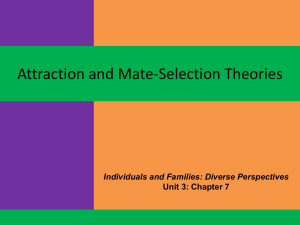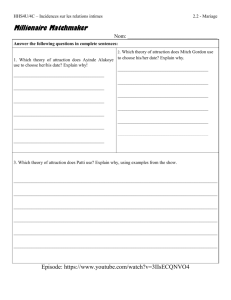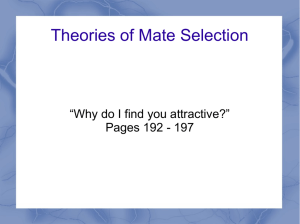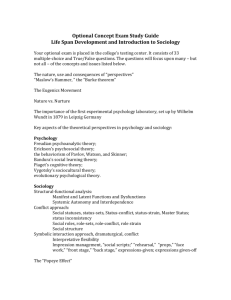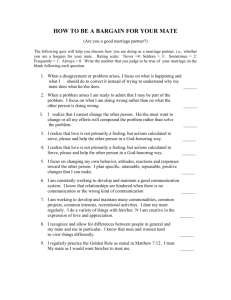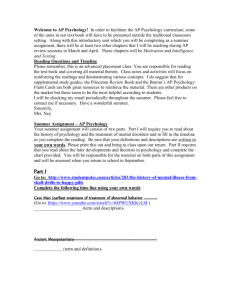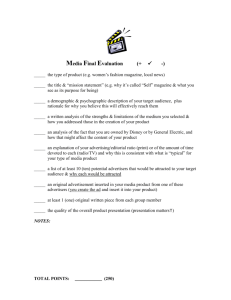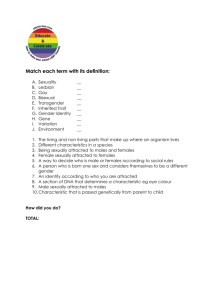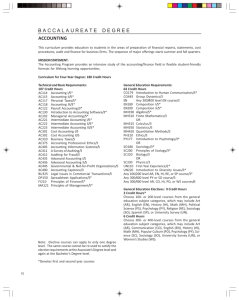Overview of Mate Selection Theories Evolutionary Psychology
advertisement
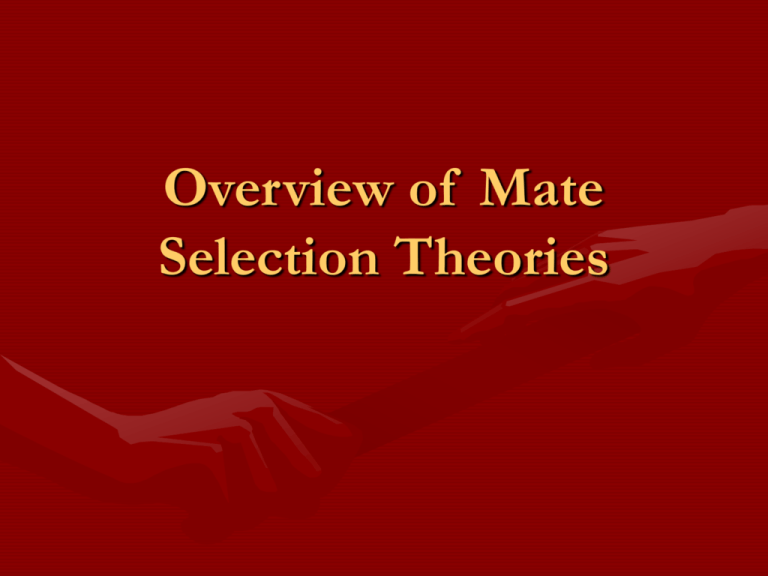
Overview of Mate Selection Theories Evolutionary Psychology • Natural selection • origins of human characteristics can be traced back to our ancestors • mate-selection preferences that were most likely to ensure that children born would survive into adulthood would be passed on to the next generation • women seek to marry up (financial resources of man very important for women) • want to find mates that will be successful providers for the family • Men are attracted to the physical aspects of a woman • women are attracted to good providers, men attracted to women who appear to be fertile Main Theorists David Buss • potential partners enables people to select the person with whom they can raise the most successful children Social Homogamy (Sociology) • individuals are attracted to people from a similar social background • and who is similar in age, race, ethnic background, religion, appearance etc Theorists David Buss - correlations were found for physical characteristics - people find other people with similar appearance as themselves attractive Theoretical Perspective • Functionalism Ideal-Mate Theory (Psychology and Sociology) • attraction is based on a person’s unconscious image of the ideal mate formed by pleasant and negative experiences • the relationship is based on romantic love and ‘love at first sight’ and leads to companionate marriage Theorist • Nadeau - the ideal mate image sets the standards that influence a person’s judgment of potential mates without the person being aware of them Theoretical Perspective • Symbolic Interactionist Social Exchange (Psychology and Sociology) • individuals must compete with others to win the hand of the man or woman they love • attraction is based more on reality than fantasy • almost everyone finds a mate in his or her society because individuals are attracted to different people Theorists • Small - people will assess the resources that he or she has to offer and look for the best possible mate who will be attracted by these resources Developmental Perspective (Psychology) • Individuals must understand who they are and what their roles are before being able to relate to someone else • individuals cannot foster intimate relationships until they have made the transition to adulthood • the challenge of intimate relationships is gaining intimacy without losing self Theorists • Erikson - women usually define themselves through connections with others while men retain more independence and delay forming committed relationships • Levinson - men prefer to retain more interdependence in relationships and also might delay commitment until their life structures are established Conflict/ Feminist Theory • explains why in most cultures and societies men are older than women upon marriage • the age difference between men and women is needed so men can maintain a dominant status in a patriarchal marriage Theorists • Fisher - 1992 • Burggraf - 1997 Theoretical Perspective • social exchange perspective - this ensures that men have greater resources, and that women will need men’s resources to improve their lifestyles Arranged Marriages • person is influenced very consciously by parents, friends, culture, religion etc • Social Exchange theory - the relative social values of the boy and girl are negotiated by the family • in past years, the dowry was negotiated by the family Free-Choice Marriages • person influenced very unconsciously by parents, friends, culture, religion etc
